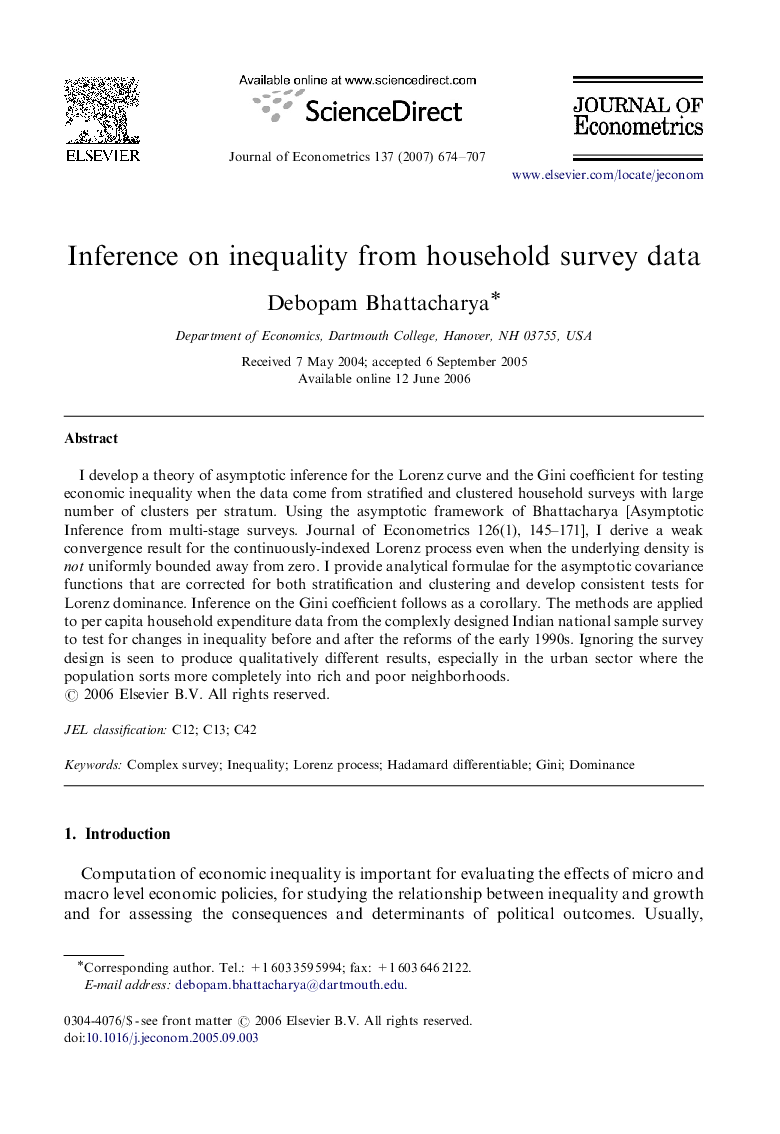| Article ID | Journal | Published Year | Pages | File Type |
|---|---|---|---|---|
| 5097431 | Journal of Econometrics | 2007 | 34 Pages |
Abstract
I develop a theory of asymptotic inference for the Lorenz curve and the Gini coefficient for testing economic inequality when the data come from stratified and clustered household surveys with large number of clusters per stratum. Using the asymptotic framework of Bhattacharya [Asymptotic Inference from multi-stage surveys. Journal of Econometrics 126(1), 145-171], I derive a weak convergence result for the continuously-indexed Lorenz process even when the underlying density is not uniformly bounded away from zero. I provide analytical formulae for the asymptotic covariance functions that are corrected for both stratification and clustering and develop consistent tests for Lorenz dominance. Inference on the Gini coefficient follows as a corollary. The methods are applied to per capita household expenditure data from the complexly designed Indian national sample survey to test for changes in inequality before and after the reforms of the early 1990s. Ignoring the survey design is seen to produce qualitatively different results, especially in the urban sector where the population sorts more completely into rich and poor neighborhoods.
Related Topics
Physical Sciences and Engineering
Mathematics
Statistics and Probability
Authors
Debopam Bhattacharya,
